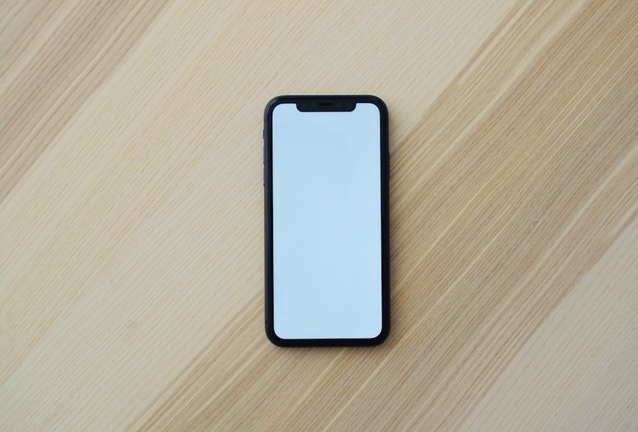We are all familiar with the sight of people glued to their mobile phones, regardless of where they are or who they are with. While there is no denying that mobile phones have become an integral part of our lives, there is also no denying the fact that excessive mobile phone use can have a negative impact on our health.
Prolonged mobile phone use can lead to a number of health problems, including headaches, eyestrain, and even cancer. In addition, mobile phone addiction is a real phenomenon, and it can lead to disturbed sleep, anxiety, and depression.
It is important to be aware of the dangers of excessive mobile phone use and to take steps to reduce our dependence on these devices. In this article, we will explore the dangers of mobile phone use and offer some tips on how to reduce our reliance on these devices.

The correlation between mobile phone use and health risks
It has been suggested that there is a clear correlation between mobile phone use and an increased health risk. The World Health Organization (WHO) has classified radiofrequency electromagnetic fields as possibly carcinogenic to humans. Prolonged mobile phone use has also been linked to disturbed sleep, headaches, eyestrain, and even depression.
Studies have also shown that mobile phone use can lead to an increased risk of certain types of cancer. This is particularly true for people who use their phones while they are exercising or engaging in another physical activity. Since the phone’s radiofrequency signals can penetrate the body, they can cause cell damage, which can lead to certain types of cancers.
Also Read: How To Evaluate a Smartphone Before Making a Buying Decision
In addition, people who are addicted to their phones often suffer from anxiety and depression. This is because excessive mobile phone use can interfere with a person’s ability to engage in meaningful activities and can often lead to a feeling of being disconnected from the world. It is important to be aware of the health risks associated with mobile phone use and to take steps to reduce our reliance on these devices.

The dangers of EMF radiation
Electromagnetic fields (EMFs) are created by electronic devices such as mobile phones, computers, tablets and other wireless devices. The signal that is emitted is called radiofrequency radiation (RFR) and it has become increasingly common as people have become more reliant on their mobile phones and other technology.
Studies have suggested that EMFs may have potentially hazardous effects on human health. Studies of the effects of RFR have been inconclusive but suggest that it may be linked to certain forms of cancer, fertility issues, and possible long-term health risks, such as cognitive and neurological effects.
It is important to take sensible steps to limit our exposure to EMFs in order to protect our health. This includes following safety guidelines for using wireless devices. It is also recommended to switch off wireless devices when not in use, use hands-free headsets, and stay away from radiating electric gadgets.
If you are concerned about the potential health impacts of EMFs, you should talk to your physician to get more information. Your doctor may be able to help you assess your risk and determine if there are any steps you can take to reduce your exposure.

The hazards of blue light exposure
Blue light from electronic devices such as phones, tablets, and computers can be harmful to our eyes, body, and brain. Blue light is a high-energy, visible light that is part of the light spectrum. It is produced naturally by the sun, but it is also emitted from our screens.
Exposed to too much blue light, our eyes can experience digital eye strain, which causes fatigue, blurred vision, sore eyes, headaches, and difficulty sleeping. Over time, this can also lead to more serious health issues, such as macular degeneration, which is an irreversible vision loss.
Excessive exposure to blue light can even disrupt our circadian rhythm, a biological process that tells our bodies when we should be awake and asleep. When our circadian rhythm is disrupted, we can experience fatigue, mood swings, and more restlessness.
To reduce blue light exposure, the American Academy of Ophthalmology recommends limiting the amount of time spent on screens, using protective filters for our screens, and avoiding screens for two to three hours before bed.

The effect of cell phones on sleep
Sleep deprivation is another serious side effect of excessive cell phone use. Studies have found that increased cell phone use is linked to sleep disturbances, such as difficulty falling asleep, more frequent night awakenings, and non-restorative sleep. This can result in increased daytime sleepiness, which can negatively impact performance and focus.
Sleep deprivation can also increase the risk of developing other health conditions such as obesity and type 2 diabetes. Furthermore, it is linked to a decrease in attention, focus, concentration, and reaction time.
When it comes to sleep, experts suggest turning off all devices at least one hour before bedtime. Exposure to light emitted from devices can interfere with the natural production of melatonin, a hormone responsible for helping us sleep. Additionally, select an option on your device that will reduce blue light, which can disrupt sleep and affect our circadian rhythm. Finally, to counteract any sleep deprivation, stick to a consistent sleep routine and create a sleep-conducive environment.

Recommendation
When it comes to reducing the dangers of excessive mobile phone use and improving your overall health, it is important to stay mindful and take advantage of the many tools that can help you reduce your usage, such as:
– Setting usage limits on your device – Use the Restrictions or Parental Control section in your device settings to limit certain app usage per day or restrict content.
– Utilizing mobile phone apps – Apps like Moment, QualityTime, and Flipd can help you monitor and reduce device usage, as well as provide helpful insights about how many hours you spend on your device.
– Allocating certain times for device usage – You could dedicate certain times of the day for device usage, such as 15 minutes out of every hour.
– Taking phone-free days or breaks – Set aside a day or two per week, or longer periods of time, to have a break from your device. This can open up a new world of possibilities to focus on more important activities, refill your energy levels, and engage in more meaningful conversations.



